Member Profiles
Member Profiles
Our member feature is an opportunity to spotlight our members’ hard work and talent while also getting to know a little bit about them and their various interests.
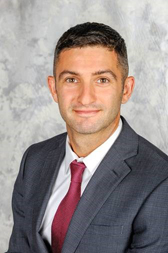
Michael Paskinoff: Reforming New York Criminal Procedure Law as a Committee Member
Michael Pasinkoff is an Assistant District Attorney in the New York County District Attorney’s Office and is a member of the Criminal Courts Committee of the New York City Bar Association. A recently enacted law that he proposed and helped move through the legislative process, gives judges express statutory authority to extend recesses in jury deliberations. Under the prior statute, judges were required to adjourn deliberations until the next day the court was open for the conduct of trial, unless the defendant consented to a longer recess. The new law gives judges express statutory authority to extend recesses in deliberations, under appropriate circumstances, for up to three business days.
What brought you to this jury deliberation issue?
Most of the cases that I handle at the Manhattan DA’s Office are long-term investigations into extremely violent crimes. As such, the trials of these cases tend to be long, and require the testimony of reluctant witnesses. Should a judge be forced to declare a mistrial because of a temporarily unavailable deliberating juror, it would be extremely difficult to conduct a retrial. My colleagues also have had to deal with mistrials caused by a deliberating juror who became temporarily unavailable. However, there was no case law or research available which would support an argument that a mistrial is not necessary when a recess in deliberations is extended because of a temporarily unavailable deliberating juror. I decided to develop that research, which eventually evolved into a St. John’s Law Review article entitled “Resolving the Conflict Between the Temporarily Unavailable Juror and New York’s Mandatory 24-Hour Limit on the Separation of Jurors During Deliberations.”
How did your membership in the City Bar’s Criminal Courts Committee assist you in your efforts to change the law governing jury deliberations?
I’m a relatively new member of the City Bar and I joined the Criminal Courts Committee as an affiliate member in January of this year. I had presented my proposal to the Committee and, after becoming a member, I was able to work on a report for the committee to review, discuss and decide whether to support. I understood that if the committee voted to approve the report, which they ultimately did, then the report would be sent to the other criminal justice committees for their respective consideration. In this case, the Criminal Justice Operations Committee also voted to sign on to the report. Following that, the report was submitted to the Policy Department and formally approved by the President of the City Bar, making it an official City Bar position. The proposed law was then sent to both the New York State Assembly and New York State Senate.
Working with the Criminal Courts Committee was not only enjoyable, the review process improved the language of the bill that was ultimately submitted to the Legislature. The Criminal Courts Committee has members who represent all aspects of the criminal justice system: defense attorneys, prosecutors, judges and court attorneys. As such, the feedback that was given both during the presentation, report-writing and approval process was extremely helpful.
Tell us briefly how this bill was introduced.
After my law review article was published, I met with Assembly Member David Weprin who introduced the first version of the bill. Assembly Member Weprin, his Chief of Staff Sumeet Sharma and I worked with the Assembly’s legislative counsels to revise the language to ensure that it would be acceptable to both the Assembly and the Senate.
How were you supported by the City Bar in advocating for this bill?
Elizabeth Kocienda, the City Bar’s Director of Advocacy, is extremely experienced with advocating for bills and the process that the bills go through. She advised me throughout the entire process. She also facilitated updating the City Bar’s report and getting the committees’ approval for the revisions. When the bill was amended, she made sure the updated report was distributed to the appropriate people in Albany. Elizabeth also directly advocated for the bill once the City Bar formally endorsed it.
What was something that surprised you about the legislative process / advocacy / Albany?
Prior to beginning my advocacy, I had no idea that both the Senate and Assembly have a significant number of legislative counsels. These counsels, who are extremely knowledgeable about a wide range of issues, play a critical role in reviewing the thousands of bills which come before each house of the New York Legislature and were a key part of our advocacy efforts.
What were some challenges you faced?
The biggest challenge was to keep the bill from being put on the back burner, given the major issues that the legislature was dealing with this session. Especially during budget negotiations and at the end of session, there are hundreds of other bills that are being considered.
What was the most rewarding part of this experience, beyond the bill’s passage?
The most rewarding aspect of the bill was working directly with Assembly Member Weprin, his chief of staff Sumeet Sharma, and learning about the legislative process. This was an extremely busy session, yet both Assembly Member Weprin and Mr. Sharma set aside time to push this much needed bill across the finish line. One of our most interesting meetings actually took place on the Assembly floor with two of the Assembly’s legislative counsels. Being able to discuss the language that would be in the final version of the bill, on the Assembly floor, was an amazing experience.
What advice would you give other City Bar members interested in engaging in policy and advocacy work?
Be prepared to devote a lot of time to your issue. Also, do not get discouraged if you feel like you are not getting any traction. Not all emails and calls to legislators will be returned. Nonetheless, keep pushing forward, keep in contact with Elizabeth and your fellow committee members, and ultimately you can get the job done.
Note: Mr. Pasinkoff engaged in the above-described activities in his individual, personal capacity and as a volunteer committee member of the City Bar; he is not – and was not – representing any current or former employer.
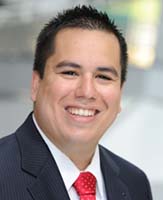
Andrew Tobel
Editor’s note: Andrew is now a Senior Associate, Regulatory Enforcement & Compliance at KPMG US
Andrew Tobel, a third-year law student at Seton Hall originally from Arizona, sought City Bar membership as a way to create a strong professional presence in New York. His relationship with the City Bar has become intertwined with his time at law school and has strongly influenced his passion to pursue a career in compliance. Andrew’s relationship with the City Bar has grown tenfold after being selected as one of the inaugural class of Student Ambassadors to the City Bar. Recommended by their schools’ career services departments or administrators, ambassadors act as City Bar liaisons at local law schools, promoting City Bar programming and encouraging classmates to become student members. Two ambassadors (one 2L and one 3L) represent each area law school. The senior ambassador from each school also serves on the Law Student Perspectives Committee to plan City Bar programs for law students.
Why did you decide to go to law school?
I’ve always had an entrepreneurial spirit and been interested in big idea issues with an analytical process. People often don’t fully understand the complex issues like the law or economics and I wanted to learn a skill set so that I would be able to know my rights and take advantage of the best opportunities for myself. I like the idea of helping other people and businesses understand their rights and opportunities for themselves, too.
How did you first hear about the City Bar? What made you want to join?
I was born, raised and went to college in Arizona and knew that if I was going to work in New York, I’d have to build a professional network. With help from my school’s Career Services office, I made a conscious effort to come in to the city and learn about different bar associations. I joined the City Bar, along with other bar associations in the region, as a first year law student. Although I am still a member of the other bar associations, I feel like the City Bar is my professional home. The programs and conferences really guided me and have given me a jump start into the compliance practice area.
Of all your non-Committee experiences at the City Bar, do any stand out as a favorite or memorable experience? If so, which one and why?
Specifically, the compliance seminars held in the Securities & Finance Law Seminar Series. The speakers were amazing and really guided me towards knowing compliance is the field I want to pursue, which was very valuable to know as a (then) second year student.
Did you have any specific goals or expectations when you became a Student Ambassador?
I wanted to bring students’ perspectives to the City Bar; I also really wanted to promote the Securities & Finance Law Seminar Series to other law students. I feel it’s really important to expand your network beyond immediate school peers and it’s a great opportunity for diverse students.
What drew you to the Student Ambassador Program?
My relationship with the City Bar has given me so much and I felt it was important to give back.
What activities have you participated in since becoming Student Ambassador? What learning experiences have you taken from it so far?
I felt honored to speak at the Annual Law Student Reception in September. It was a good experience to talk about the importance of face time at the bar and building your presence with the other members and staff—it allows you get answers on issues and hot topics of law that are not always discussed in school. On campus, we [Seton Hall’s City Bar student Ambassadors] promote the City Bar and its programs. In the fall, we promoted the Law Student Reception and Boot Camp and received more than 20 applications for student memberships.
What would you say was your best experience(s) working as Student Ambassador?
I’m in the middle of it. Having the opportunity to give back to the City Bar; learning how to brand myself; providing an opportunity to build on the relationship between the City Bar and my school.
What other programs or activities have you participated in at the association?
Lawyers Connect, Boot Camp, the Securities & Finance series, and some of the Summer Series events. Every event I’ve been to, the panelists have a good story of how they’ve made it. It’s been inspirational and, I think, very valuable to hear first hand from industry leaders particularly on a subject area I haven’t been exposed to.
In what ways has the City Bar helped or contributed in your current studies and/or in preparing for your future practice?
Not only did I learn the subject area I want from the City Bar, but also how to follow through on getting a job in compliance.
Are there any specific committees you’d like to join after your tenure as Student Ambassador?
I have an interest in health law, finance, and securities law. I think I’d like to join a committee that can affect and influence compliance in general.
Has there been any aspect about your experiences at the City Bar that surprised you?
Having the opportunity to speak at the reception–I was very humbled and appreciative that I got to do that. The City Bar has a strong dedication to students.
Do you feel you’ve accomplished the goals you first set when you joined the City Bar?
I think I’ve exceeded the goals I had before and have now set new ones. I have a bigger vision for myself than I did before.
Do you have any comments or advice to current or potential student members about the possible opportunities and experiences at the City Bar?
The connections and relationships built with one’s peers are so important and necessary.
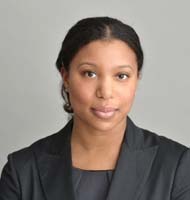
Tiffany Dunn: Working Professional by Day, Law Student at Night
Working full-time and attending school at night can be very difficult, but JD candidate Tiffany Dunn makes it look easy, finding time to be active at her law school and at the City Bar. After being admitted to New York Law School, Tiffany continued to work full time and is currently employed by KGS-Alpha Capital Markets LP, a fixed-income brokerage dealer, while attending evening classes at NYLS. Even with these challenging dual commitments, Tiffany has found time to contribute to the City Bar as a member of the Career & Advancement Management Committee. Last year, Tiffany coordinated the very successful April 2013 panel Careers in Compliance. She was recently reappointed to the Committee for the 2013-2014 session and is unsurprisingly eager for more experiences with the City Bar.
Why did you decide to go to law school?
Prior to law school, I worked with adults with developmental disabilities. I spent a lot of time talking to them and helping them with job training. I liked being hands-on with my clients, but also wanted to help with their advocacy because they felt they didn’t have a voice. Law school opened my eyes to all the various ways I could help people. I quickly learned it is not just the disabled or disadvantaged who need help. Regular working people, like me, also need lawyers who will give them a voice. Whether it is helping someone with a business transaction or a housing issue, a law degree is a tool to help others in almost every facet of their lives.
What do you most like about law school?
The journey! As an evening student, there is camaraderie among my peers. We have all grown significantly from our first year tort and contract classes. We are finally accepting the gray areas of law and welcoming discussing the different creative ways to interpret a statute.
As an evening student, how do you balance your school and work responsibilities?
I try to stay super organized and keep plenty of Post-it Notes handy to write down ideas as they pop up. I have to prioritize everything and, unfortunately, sleep moves to the bottom of the list. I try to take advantage of breaks or days off to get ahead, or sometimes catch up.
What do you want to do with your degree when you’re out of law school?
I’m interested in compliance. It’s a nice blend of my past experiences in health care and my interest in finance. I could see myself in regulatory, finance or hospital work.
Why did you decide to join City Bar and how has belonging to City Bar helped you thus far?
I first heard about the City Bar through school and decided to join because I wanted to expand my breadth of legal knowledge and my legal network. There are some things that you learn best through experience outside the classroom, and active affiliation with City Bar has been a terrific avenue for outside the classroom experiential learning. City Bar has a vast membership, which means there are a lot of different perspectives based on diverse and practical work experiences. I have met several members who have provided guidance and, of course, a few funny stories when reminiscing about their own law school experiences.
What drew you to committee work, particularly the Committee on Career Advancement & Management? Did you have any specific goals or expectations when you joined?
Although I joined the City Bar in my first year of law school, it wasn’t until last fall that I joined a committee. I didn’t have specific goals when I joined the City Bar, but I felt as an evening student I had a lot to bring and out of all the committees, I felt that there were broader programming options with the Career Advancement & Management Committee. There’s more opportunity to come up with specific solutions for various needs and an examination of different practice areas. I can voice students’ concerns to the committee and have them taken seriously. There’s also a sense of giving back: the camaraderie and support from fellow committee members who offered assistance when I was planning the panel was incredible. I feel privileged to have that one-on-one relationship with the other committee members.
What has been the best part about being a member of the Career Advancement and Management Committee?
The best part has also been the scariest, most uncomfortable part – putting myself out there and learning from disappointment. When you initially reach out to attorneys–whether as part of the committee or not—you are a little nervous that an attorney will not email you back or will say “no” when you invite them to a program. But once I make the connection with an attorney, I get a kick in my step. That connection gives me momentum to continue to build my network. I am already looking forward to reaching out to attorneys for my next City Bar program – how to help students manage their first legal internship.
Besides working with the Career Advancement & Management Committee, what other programs or activities have you participated in? Are there any specific committees you’d like to join after your tenure with the Career & Advance Management Committee?
I attended networking programs earlier this year including “Women in the Legal Profession: Leadership from Law School to Practice.” I am also interested in the Employee Benefits & Executive Compensation Committee, which wrote a report on the Affordable Care Act and its impact on employers and employees. There is a wealth of knowledge I can gain from that arena. Alternatively, the Young Lawyers Committee would be interesting.
Do you feel you’ve accomplished the goals you first set when you joined the City Bar?
Yes. However, I now have more ambitious goals. Now that I’ve gotten over the hump of my first program, I’m eager to do it again. I feel like I have the confidence to want to reach out to people. I’ve actually been thinking about a program for my demographic: people working and going to school, specifically what is needed in making the transition from a 9-to-5 schedule to law school. [The Career and Advance Management Committee has looked into this subject before, releasing an article last year on the subject entitled, “Why Getting Legal Experience as an Evening Student is Important and How to Do it.”]
Was there anything that you’d like to say about the City Bar that you haven’t had a chance to say yet?
I feel the City Bar really embraces the definition of diversity in all aspects: race, age, and experiences. There are so many possibilities that students don’t know about or take advantage of. My message to other law students – “Go out on a limb.” Do something you never imagined you’d have time to do and become a part of City Bar. By becoming a City Bar friend, you get the advantage of the many programs City Bar offers. Plus, you will gain tremendous practice in meeting people.
Interview conducted by Courtney Fitzgibbons, Senior Director of Career Planning at New York Law School and Chair of the Career Advancement and Management Committee, September 2013.
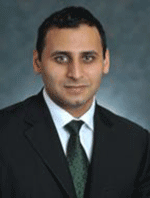
Muhammad Faridi—
Growing with the City Bar: from Law Student to Lawyer
Muhammad Faridi has been admitted to the bar for five years, but his relationship with the New York City Bar began long before his legal career. Soon after beginning his legal education at CUNY School of Law, he was selected as a City Bar Diversity Fellow and received a summer associate position with MetLife after his 1L year.
After graduating, Muhammad clerked for Judge Jack B. Weinstein (EDNY) before going to Patterson Belknap Webb & Tyler LLP where he practices commercial litigation and business reorganization & creditors rights. In addition to his practice, Muhammad is involved in taking on pro bono cases, which include advocating as guardian ad litem for a mentally disabled client and representing a death-row inmate in Missouri. The City Bar has helped Muhammad create a venue to explore his passion for anti-death penalty advocacy.
What made you want to join the City Bar?
I met Steve Greenwald, then chair of the City Bar’s Capital Punishment Committee. He eventually became a mentor. He asked if I was interested in doing research on a report about developing a model statute for compensating people wrongfully convicted that the Capital Punishment and Corrections Committees were working on, which I was. The report was published in 2010 and recently re-published as a law review article.
Did you have any specific goals or expectations when you first joined the City Bar or the Capital Punishment Committee?
I just wanted to help out. My goals were to learn about the issue, to do advocacy, and make sure I contributed to the effort to get rid of the death penalty.
What learning experiences did you take from your time as a student member and later, as a chair?
As a student member, I became a specialist in one area of death penalty law. As the chair, I get to set the committee’s agenda. I want the committee to focus on the international aspect of the death penalty and other cruel forms of punishment, such as life without parole for juveniles.
What would you say was your best accomplishment thus far working with the Committee?
This past summer, we put on an amazing training program for law students and attorneys interested in representing death-row inmates. The Committee also gave the Norman Redlich Capital Defense Distinguished Service and Pro Bono Awards to two people, David Herrington and Kevin Doyle, who have dedicated their professional careers to death penalty cases. [The Redlich Awards were named in honor of the late NYU Law School Dean Norman Redlich, a noted anti-death penalty advocate. This year was the first year the awards were given.] That was probably the most rewarding experience.
How did your City Bar experiences affected you as a law student and now, as a practicing attorney?
It’s allowed me to meet people who mentored me throughout law school and after. I was able to call on many of them for career advice. That has been one of the biggest personal benefits of my committee involvement.
Of all your non-Committee experiences at the City Bar, do any stand out as a favorite or memorable experience?
Lectures given by important legal figures still resonate; I still remember a lecture by Justice Stephen Breyer focusing on civil liberties post-9/11 that was very moving.
You’ve been a speaker at several City Bar programs. How has that affected your career?
I don’t think it’s directly affected my career, but it has given me a lot of confidence. I’m not shy about speaking in public any more. As a lawyer, you should take every opportunity to speak in public. It’s very helpful.
Do you feel that you’ve accomplished the goals you first set when you joined the City Bar?
It is too early to tell; I have many things that I would like to accomplish. As you accomplish some of your goals, you have to be ambitious and continue adding to the list.
Do you have any advice to current or potential student members about the possible opportunities and experiences at the City Bar?
Grab every opportunity that comes to them; don’t be shy about signing up for issues you’re passionate about. But always remember your grades and education take priority over everything else.
Was there anything that you’d like to say about the City Bar that you haven’t had a chance to say yet?
The Bar’s recently done a great job in recruiting young lawyers, and under the guidance of veteran lawyers, I believe the young attorneys can really blossom.
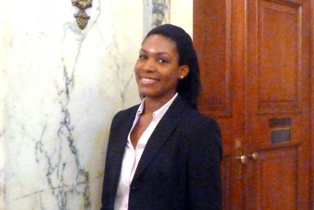
Rossalyn Quaye—
Always Training
Editor’s Note: Rossalyn is now Executive Advisor to the US CFO at the National Grid
While working as a fitness trainer, Rossalyn Quaye had several clients who were attorneys. She heard what she terms “stimulating” stories about their work. That interaction with her clients was one of the main factors that inspired Rossalyn to attend law school and business school.
Rossalyn was determined to enter the arena fully prepared. She attended City Bar programs like the annual Professional Development Workshop series in the months before being admitted to Fordham Law School in 2009 and Fordham Business School in 2010. “These programs helped me be strategic about what classes to take, what opportunities to take advantage of, and how I present myself on paper,” she said. “From the beginning, I knew to treat law school as an opportunity to be a lawyer in training, not as an extension of undergrad.”
Soon after enrolling at Fordham, Rossalyn became a student member of the City Bar and started looking for more ways to become involved. “I expected to meet people, make personal connections with students from other schools and practicing attorneys, and generally become more aware of what it means to be a lawyer,” she said. She began mentoring students in the Thurgood Marshall program and was appointed to the Law Student Perspectives Committee. During her first two years on that Committee, Rossalyn served as the Committee’s representative helping to plan the annual summer program for law students, What It’s Really Like to Practice Law as A Woman. Rossalyn worked alongside lawyers providing ideas for program topics and speakers. Her input was greatly valued as it reflected students’ interests. She also contributed to planning the Law Student Perspective Committee’s My First series, panels designed to introduce law students to basic skills not always touched on in law school, such as how to make a court appearance, how to conduct a client interview and how to take your first deposition. Coordinating My First Deposition was a memorable experience for Rossalyn. “As a junior law student, I found myself reaching out to attorneys and educating them about the program and what the Committee wanted the program to accomplish. It was a great opportunity to take charge, plan logistics, and it got me out of my comfort zone,” she says.
Rossalyn plans on staying involved at the City Bar for years to come and is hoping to work with other committees. She encourages law students to be more active in organizations outside of law school. “Coming to a place like the City Bar and getting to meet attorneys gives law school real context,” she says.
Being a law student takes up a lot of time, and pursuing a joint JD/MBA only magnifies the work load, but as Rossalyn advises, “Networking with members of the profession is key to a successful legal career, and there’s always time for networking.”
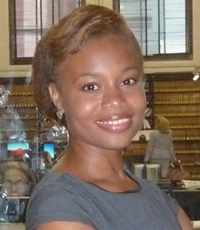
Veronica Dunlap
Leaping onto the Legal Stage —a Nontraditional Career Path
Editor’s Note: Veronica is now Counsel at NYC Department of Consumer Affairs – Office of the General Counsel
Among the current generation of professionals, it appears increasingly common not only to work at multiple companies during one’s professional lifetime, but also to have careers in several different industries. Veronica Dunlap worked in not one, not two, but three challenging fields before becoming a joint JD/MBA candidate at Fordham University. A classically trained ballerina, she trained with the Alvin Ailey American Dance Theater and the Dance Theatre of Harlem before performing professionally for 10 years. Upon retiring from ballet, Veronica founded and operated her own business that specialized in handmade body care products and childbirth services. While finishing her BA, she worked briefly as a Public Affairs Assistant for the State Department, and later in its Office of Foreign Missions. Veronica credits the range in her nontraditional background, particularly her experiences in the dancing world, with leading to her legal career. “There are aspects of dance that are not that different from law,” Veronica says. “Attention to detail, the work ethic, the competitiveness—it was not a hard transition.”
In her first year of law school, Veronica was encouraged by a mentor to become a student member of the City Bar. Since joining, Veronica has attended more than a dozen programs, often on finance (her practice interest) or diversity. She heavily credits the City Bar in helping her stay abreast of current trends and changes in the law, furthering her studies beyond the classroom. “The City Bar is a place where you can take advantage of all the opportunities to figure out what you want to do, what your practice interests are,” says Veronica. “The lawyers I have met through the City Bar are a tremendous asset as well. They are always open to helping you out.”
In addition to furthering her own academic and professional skills, Veronica is extremely invested in furthering mentoring programs for minority and disadvantaged students at the high school and college level. After learning about the City Bar’s Thurgood Marshall Summer Law Internship Program which places high-achieving New York City high school students with legal employers for the summer, Veronica applied for and was appointed as the Thurgood Marshall Fellow, working closely with the Program’s director to help prepare students for their first professional experience by teaching the students the importance of finding mentors to help navigate the professional world, how to hone their communication skills, and demonstrate how to network with their peers and established professionals. “So many mentors supported me in law school and I wanted to contribute, to instill in students some of what I learned about networking, skills building, relationship building.” Seeing the transformation of these students is a source of great pride for Veronica. “They have matured very much, even so early in their development,” she says. “Seeing them interact with these professionals, at ease and confident—it’s no longer an unattainable dream. It’s wonderful.”
Today, Veronica calls the City Bar her second home. “It’s helped me grow professionally and personally. It’s a great place to make a difference,” she says.
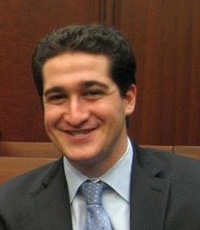
Brian Farkas
Seeking the “Real World” While in Law School
Editor’s Note: Brian is now an Attorney at Goetz Fitzpatrick LLP
After starting at the Benjamin N. Cardozo School of Law two years ago, Brian Farkas, like many law students, was eager to gain experience with practicing attorneys in the New York legal community. His fervor for the different aspects of practicing law, particularly commercial and intellectual property, helped Brian obtain several prestigious positions, including a judicial internship, a legislative policy internship with the City Council, and placements in Cardozo’s Mediation Clinic and Holocaust Claims Restitution Clinic. However, he wasn’t just interested in meeting the “right” people or building an impressive resume; Brian was—and is—keen on building deep connections with lawyers to learn about and contribute to the work that they do. After attending an October 2010 Cardozo event where then-City Bar President Sam Seymour spoke about the opportunities at the City Bar, Brian became a student member in December 2010. “It seemed a more authentic way to find mentors, to really engage with the issues and the women and men who were working on them,” Brian says.
Soon after joining, Brian became enamored of the City Bar. “I’m a huge nerd,” Brian laughingly confesses. “I love the Bar Association library; it’s such a great study space. I probably go to programs at least once a week and I’m constantly trying to bring my friends.” At one of these programs, he met the chair of the Committee on Career Advancement and Management. Wanting to become more deeply involved with the City Bar and attracted to the Committee’s commitment to creating diverse programs and encouraging law students to become more involved with the City Bar, Brian responded to the Career Advancement and Management Committee’s ad for student membership applications and was accepted as one of the Committee’s two student members.
In the year since Brian joined the Committee, he has co-coordinated two programs: “Careers in Art Law” and, “For International LL.M. Students and Attorneys: Navigating the US Legal Market and Planning Your Career.” Brian says, “What I love about art law, and why I wanted to spearhead the event, is it’s so multi-dimensional and inter-disciplinary: there’s a transactional component, a litigation component, aspects of civil procedure, trusts & estates, property law, and intellectual property law.” While helping organize the LL.M. panel, Brian recruited a former employer to be a speaker. Brian also recently wrote “The Value of Semester Internships” for the Career Development section of the City Bar’s webpage, advising law students that seeking “real world” experience while they are still in school is not only worthwhile but a necessity given expectations in the profession today.
Brian hopes other students find the same benefits he’s received from the programs: “One of the best things you can do is attend programs about practice areas that you think you’d have nothing to do with,” he says. “The truth is you’ll get a vocabulary, a context you can’t get in the academic world. Just hearing practitioners talk about their successes, failures, and ongoing challenges has increased my own knowledge of various practices and made it far easier to communicate with attorneys.”
Brian has been re-appointed to the Career Advancement and Management Committee for another year and is excited to continue working with “so many different, talented, active attorneys” to showcase the many opportunities and practice areas of the law to his fellow students.

Whitney Montgomery
Catapulting a Legal Career
Editor’s Note: Whitney is now an Associate at McCarter & English, LLP
Whitney Montgomery’s journey to being a lawyer began when she was selected as a Fellow in the City Bar’s Diversity Fellowship program, which provides first year law students from underrepresented populations the opportunity to spend a summer in some of New York City’s most coveted legal environments. Whitney was placed as a summer associate in Morgan Stanley’s Legal & Compliance Division, where she researched and drafted memos on matters of securities law, sales and marketing service agreements, and state regulations on issues ranging from in-house counsel to proprietary investment strategies.
“The Fellowship catapulted my career,” says Whitney. “Everything I’ve achieved since then, I attribute to being a Fellow.”
As she began her second year in law school, Whitney was eager to interact with lawyers who practice in securities and finance law, and saw involvement in the City Bar as a means of achieving this. Whitney reached out directly to the chairs and secretaries of a number of City Bar committees in these areas. After speaking with several committees, Whitney was invited to join both the Law Student Perspectives Committee and Securities Litigation Committee as a law student member.
As a member of the Law Student Perspectives Committee, Whitney worked closely with the committee chair to organize a panel on student engagement and preparedness for law school. The program touched on such issues as exam anxiety, how good and bad habits develop, and acclimating to law school. Whitney served as the panel’s moderator and went on to sit on several other panels for the Law Student Perspectives Committee.
In addition to her committee work, Whitney has been an active volunteer with the City Bar’s Diversity Pipeline Initiatives, which is designed to provide professional-related experience, development and educational programs for New York City students interested in pursuing legal careers. Working with the Pipeline program, Whitney has helped high school students—her own mentees—improve their resumes, learn interviewing techniques and prepare for job interviews and placement. Whitney only wishes she had had access to a similar program in high school.
As Whitney prepares for her upcoming graduation from Touro Law School, the bar exam and her new job with Morgan Lewis in the fall, she is eager to continue her relationship with the City Bar. She encourages fellow students to become involved with City Bar committees, citing her own experience of meeting established lawyers who practiced in the area of law that she was interested in, the frequent networking opportunities, and the ability it gives students to stand out from the crowd in future interviews.
“I attribute a lot of my success to my involvement with the City Bar,” says Whitney. “It’s the place to find mentors, learn about an area of practice, and gain experience.”
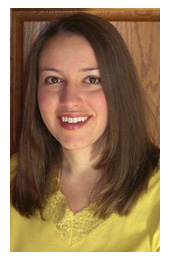
Erin Meyer
Editor’s Note: Erin is now Pro Bono Counsel at Proskauer Rose LLP
Erin Meyer, a third-year student at Columbia Law School, and an active member of the New York City Bar Association, is thrilled to be a student member of the City Bar’s Lesbian Gay Bisexual and Transgender (LGBT) Rights Committee. During her first year on the Committee, Erin worked with attorneys on the Gender Identity & Gender Expression Subcommittee to plan and host a pro bono Continuing Legal Education program for legal service providers with transgender and gender non-conforming clients. The program offered cultural competency training and practical tips in a variety of areas affecting low-income transgender clients, such as immigration, employment discrimination, and family law. This year, she has continued to work with the Subcommittee to advocate for increased access to healthcare and state Medicaid insurance coverage for transgender individuals. “Serving on this Committee has been an amazing opportunity to collaborate with and learn from so many talented, inspiring, and experienced lawyers who are highly motivated to advance social justice,” Meyer said.
At Columbia, Meyer is participating in the Accelerated Interdisciplinary Legal Education Program, a six-year dual-degree program in which she will receive a B.A. in Women’s & Gender Studies from Columbia College and a J.D. from the law school. She has focused her legal studies on Sexuality & Gender Law, participating in the Columbia Journal of Gender and Law and the Sexuality & Gender Law Clinic. In the Clinic, she collaborated with fellow students on a variety of advocacy projects aimed at protecting the rights of sex workers, enhancing law enforcement responsiveness to domestic violence, and obtaining asylum for a young man who was persecuted in his home country due to his sexual orientation.
During the summer after her first year of law school, Meyer worked as a legal intern at the Transgender Legal Defense & Education Fund (TLDEF). While at TLDEF, she researched state laws regarding name and gender change procedures and conducted interviews with clients who faced discrimination based on their gender identity in areas such as employment and the prison system. After her second year of law school, she became a summer associate at Hogan Lovells, where her pro bono work included assisting a victim of domestic violence in petitioning for an order of protection, and researching Haitian laws as part of a larger project aimed at obtaining humanitarian parole for Haitian women who had been sexually assaulted in the aftermath of the January 2010 earthquake.
Meyer is grateful to the City Bar for enabling her to participate on the LGBT Rights Committee, and she strongly encourages other law students to become members of the City Bar and to join a committee. “The chance to work with accomplished lawyers from a variety of different legal practice areas and backgrounds on a cause you are passionate about is an opportunity not to be missed!” she says.

Nicholas Curmi – The 44th Street Bridge to Malta
Editor’s Note: Nicholas is now working in Capital Markets at GANADO Advocates
It’s not every day that you meet a lawyer from Malta, a southern European country in the Mediterranean off the coast of Italy. But it’s not surprising to meet one here at the City Bar, whose members come from all over the world.
Nicholas Curmi received his Doctor of Laws (LL.D.) and Bachelor of Laws (LL.B) degrees from the University of Malta, and also studied maritime law at the Università degli Studi di Roma Tor Vergata in Rome, Italy . After completing his studies, Curmi joined Maltese law firm Ganado & Associates as a member of its financial services practice group, where he developed a keen interest in corporate, insurance and capital markets matters. Like lawyers everywhere, he traveled when he could, and he networked. While attending a conference in Europe, he met a lawyer from a New York firm. Curmi soon set his sights on a bigger stage.
“I wanted to be in the financial capital of the world,” says Curmi, who is now studying to get his Masters of Laws (LL.M.) degree from Fordham University School of Law, specializing in banking, corporate and finance law. He also serves as an Associate Editor of Fordham’s Journal of Corporate and Financial Law. “My decision to study in New York was motivated by a desire to gain a U.S. legal perspective and also to help raise awareness here about what Malta has to offer in the financial services sector,” says Curmi. He says Malta, a European Union member state, is becoming a prominent center for financial services within Europe, where a growing number of international financial institutions are opting to set up operations given several key advantages that the domicile has over other well-established European jurisdictions.
Continuing his networking in New York , last fall Curmi attended the City Bar’s reception for International LL.M. candidates, where he was encouraged to join the City Bar. After becoming a member, he joined the Insurance Law Committee, on which he has become actively involved in projects concerning current legal and regulatory issues affecting the insurance industry. Curmi recognizes the importance of being involved in a City Bar committee, particularly for having the opportunity to meet and work alongside leading attorneys in their field. He says that the Committee takes a very hands-on approach to its work, and organizes some outstanding CLE programs at the City Bar on a regular basis.
Upon joining the Insurance Law Committee, Curmi was surprised to learn that the New York lawyer he had met over a year earlier at the conference in Europe was also a member of the Committee. “A year ago I would never have imagined that I would end up on the same Committee as him and other practitioners at the forefront of the U.S. legal industry, discussing current issues in New York law,” says Curmi. “But this is why I came to the U.S. in the first place: to broaden my knowledge, get a global outlook and become a truly international lawyer – I am indebted to both Fordham and the City Bar, who have helped me tremendously in working towards these goals.”
Curmi is reading for his LL.M. degree at Fordham following the award of a STEPS scholarship, which is part financed by the European Union – European Social Fund (ESF) under Operational Programme II – Cohesion Policy 2007-2013, “Empowering People for more Jobs and a Better Quality of Life.”

William Vidal
Editor’s Note: William is now Senior Counsel at the NYC Law Department
Having grown up between Paris and the U.S., William Vidal had long sought a way to bridge the two. That ultimately led him to law school and a specialization in International Trade. And that led him to the City Bar, where he applied to join the Association’s International Trade Committee.
In joining the committee, Vidal had interests beyond immersing himself in the subject area and engaging in substantive discussions about international trade. He also wanted to meet practitioners to understand what the actual practice involved. “The meetings were great, said Vidal, I got to work with practitioners and discuss the latest developments in the Doha Development Round, the current trade-negotiation round of the World Trade Organization (WTO), and ongoing tariff related disputes. The meetings also had a nice social aspect. Often, after meetings, several of us would have a drink, which allowed me to get to know the committee members on a more personal level.”
Now an attorney in the New York City Law Department’s Commercial and Real Estate Litigation Division, Vidal has found the City Bar to be a friendly, collegial place, where lawyers can gain invaluable experience. As he puts it, “the City Bar’s committees have offered a unique opportunity to explore and learn about specific practices in an environment with little outside pressures. This allows for productive and frank conversations in a relaxed setting, which is ideal for a young attorney.”
During law school, Vidal interned for the Department of Justice’s International Trade Field office and for Senior Judge Tsoucalas at the Court of International Trade. His other main interest in law school was human rights, which he pursued by working as a research assistant for Professor Ruti Teitel and the Justice Action Center at New York Law School and through his work with Lawyers Without Borders (LWOB), an international non-profit organization whose goal is to provide legal support to Rule of Law and human rights projects. As part of his work with LWOB, Vidal and a group of students started a monthly Human Rights publication entitled Global Human Rights Bulletin, to increase awareness of Human Rights related issues. According to Vidal, his experience on the City Bar’s committee and his internships and Research Assistant work allowed him to determine that he was actually interested in the interface of development and human rights.
After graduating from law school, he applied to be a fellow at the Center for New York City Law. During his fellowship, he became very interested in how the City functions, which led him to apply to the New York City Law Department and eventually to join the Administrative Law division, where he stayed for two years. This past July he transferred to the Law Department’s Commercial and Real Estate Litigation Division. At the Law Department, Vidal has taken a special interest in urban development and how land use policies can be used to promote social objectives. To explore this interest, Vidal joined the City Bar’s Land Use and Zoning Committee, where he has been able to interact with great land use practitioners and discuss interesting land use issues, such as revisions to the zoning resolution and recent community benefit agreements.
The road to finding one’s role in the legal profession can be a winding one, but as Vidal’s career makes evident, the City Bar can be a great guide on the journey.
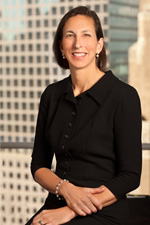
Sharon L. McCarthy
Sharon L. McCarthy is Partner at Kostelanetz & Fink, LLP where she represents individuals and corporations in white collar criminal matters and tax controversies. She has previously worked for both the United States Attorney’s Office for the Southern District of New York and the New York State Attorney General’s Office. While at the United States Attorney’s Office, she served as Chief of the Violent Crimes Unit and Deputy Chief of the Criminal Division and was honored twice with the Director’s Award for Superior Performance as an Assistant United States Attorney. Early in her career, Ms. McCarthy worked as an Associate at Lankler Siffert & Wohl, LLP after spending two years as a law clerk to the Honorable John F. Keenan of the United States District Court for the Southern District of New York. She is a graduate of Colgate University and Fordham Law School.
Ms. McCarthy has been invited to speak about criminal law and government ethics issues at engagements around the country, including “The Use of Social Media in Criminal Trials: Ethical & Practical Considerations,” “Top Criminal Tax Practice Tips and Representation Strategies,” and “Mind Games: Challenging Intent, Winning the Case.”
Ms. McCarthy is a member of a number of professional associations in New York and is currently serving as Chair of the NYCBA’s Criminal Law Committee.
How did you decide to pursue a career in criminal law?
When I graduated from college, I hadn’t yet decided what I wanted to do with my life, so I moved to Arlington, Virginia, which is just outside of Washington, D.C., to stay with a friend while I figured things out. I sent out a bunch of resumes and was lucky to secure a position as a paralegal at Miller, Cassidy, Larroca & Lewin, which just so happened to be one of the best white collar criminal defense boutiques in the country. The lawyers at Miller, Cassidy had, among other things, represented Richard Nixon, and they were handling some of the most interesting First Amendment issues at the time. Although my work as a paralegal was tedious – it essentially consisted of Bates stamping and filing documents in an environmental litigation matter – I seized the opportunity to listen to the attorneys, many of whom had clerked for Justices of the Supreme Court, discuss their work. I became interested in the issues and the legal process, and, with the encouragement of the attorneys at Miller, Cassidy, I decided to go to law school.
How have your career experiences built on one another and influenced your transitions?
Clerking for Judge Keenan laid an excellent foundation after law school not only for me to learn from a great judge but also to observe very talented courtroom lawyers in action. Then, when I moved to Lankler Siffert & Wohl, I gained tremendous practical experience from excellent attorneys, including in the courtroom when I had the opportunity to second-chair a federal criminal trial in which our client was acquitted. With the support of the partners at Lankler Siffert & Wohl, I applied to the U.S. Attorney’s Office and was incredibly fortunate to be hired by then United States Attorney Mary Jo White.
During my time at the U.S. Attorney’s Office, I served as lead counsel and supervisor on many federal criminal trials and appeals. After 12 years in the office, I realized that I had accomplished everything I had hoped to while there and that it was time for someone new to take my place as Chief of the Violent Crimes Unit. From the U.S. Attorney’s Office, I moved to my current firm, Kostelanetz & Fink, where I practice in the area of white collar criminal defense. In each of my jobs, I have found tremendous professional fulfillment.
What was the biggest hurdle you faced when switching from prosecution to defense?
The biggest hurdle I faced when changing from a government position to private practice was the loss of influence and agency support. When someone receives a call from a government prosecutor, that call tends to be given significantly more weight than it does from a private defense attorney. In addition, of course, federal prosecutors have subpoena power and their clients are major agencies – FBI, DEA, and the NYPD, to name a few. When I left the U.S. Attorney’s Office and no longer had those tools or that agency support, I felt a bit powerless, so it took a while for me to adjust and figure out new and creative ways to find solutions to problems and gather information useful to my clients’ defense.
Did you have any mentors who helped you shape your career?
I have been privileged to know Judge Keenan since 1988, and he has provided me with invaluable advice and guidance at every stage of my career. As his law clerk, I was able to witness first-hand the high level of advocacy in the Southern District of New York, while listening to Judge Keenan’s feedback based upon his many years as a highly respected trial lawyer under Manhattan District Attorney Frank Hogan. Beyond all else, Judge Keenan has served as a model of professionalism and humanity to me. From the courthouse custodian to the Chief Judge, Judge Keenan is equally kind and generous with his time, and I do my best to try to channel his teachings in my daily dealings with people.
What is your advice to attorneys looking to transition between prosecution and defense?
For those moving from defense to prosecution, I would say that they have to really want to serve in that position, which is very different from being a defense attorney. In order to be a prosecutor, you have to be comfortable enforcing the laws on the books as they stand, but you also have to have the judgment to know when a case should and should not be prosecuted.
For those moving from prosecution to defense, there are a lot of different paths available – private, corporate, not-for-profit — so it is important to choose a path that will bring fulfillment. For me, it has always been important to wake up every morning and look forward to going to work. That can’t happen if a person is uncomfortable with the nature of one’s job.
How has your work at the City Bar impacted your career?
Serving as Chair of the Criminal Law Committee has significantly broadened my outlook on certain legal issues, particularly those involving state criminal matters. Hearing different perspectives from all areas of criminal practice, from legal aid attorneys to state prosecutors, has been eye-opening, particularly since my practice has been very federally focused. As Chair, I’ve been involved in incredibly respectful debates on a variety of criminal justice issues, and I’ve learned a lot from members of the Committee. It has definitely been an enriching experience, both professionally and personally.
Interview conducted by Nicole Paton, New York Law School ‘17 and Member of the Criminal Law Committee, April 2015.
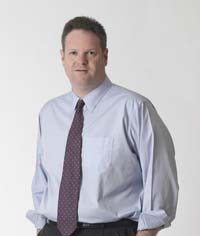
Eric Penzer
Interview with Eric W. Penzer, Esq., a Partner at Farrell Fritz, P.C., concentrating in trust and estate litigation. His practice includes probate contests, accounting proceedings, discovery and turnover proceedings, and other litigation related to estates and trusts. He is a frequent author and lecturer on topics related to his practice area, and sits on the Trusts, Estates, and Surrogate’s Court Committee.
How did you become involved in the field of trust and estate litigation?
Although I began my career as a commercial litigator, several of my mentors advised me of the benefits of having a more specialized practice. Farrell Fritz has a renowned Trusts and Estates practice group, including several full-time litigators. When I was in my seventh or eighth year of practice, my firm’s management approached me with the opportunity to join the trust and estate litigation group. Although I was initially apprehensive – changing one’s practice area as a senior associate is a daunting proposition – I followed the advice of those I trusted and took a chance that it would work out. It did. I learned (and continue to learn) from the best.
What do you like most about being a trust and estate litigator?
Estate litigation is not just about the money. My practice involves relationships — families — that are often central to the issue in dispute. Money is always an issue, but it’s seldom the only issue. Plus, the estate litigation bar is very close-knit and congenial; I have great respect for the attorneys with, and against whom, I litigate. I also appreciate being able to practice in the specialized Surrogate’s Courts, before Judges who are quite knowledgeable in matters concerning estates and trusts.
What do you like least about being a trust and estate litigator?
The same thing I like the most. Because my cases are almost never only about the money, I often become involved in family relationships and feuds; which require more of a personal investment. This makes my days more fulfilling, but can definitely be emotionally exhausting. It can also make cases more difficult to resolve – it’s not just dollars and cents, it’s sometimes about “mom always gave him the bigger slice of meatloaf.”
What skills are important for being successful in your position?
Most people don’t appreciate the variety and complexity of matters litigated in the Surrogate’s Courts — including “commercial” disputes that somehow affect a decedent’s estate. So all the basic litigation skills — reading, writing, negotiating, and analyzing documents, statutes, and cases – are crucial. Most important, though, are listening skills. To be successful in this type of work you need to understand a client’s story (but, at the same time, keep in mind that the story may be biased) and objectives.
Has City Bar impacted your career?
Yes, being a member of the Trusts, Estates and Surrogate’s Court Committee is intellectually stimulating; I am surrounded by some of the “best and the brightest” in my field. We discuss the most cutting-edge issues in trusts and estates, swap stories, and bounce ideas off one another. I always look forward to the next meeting.
Do you have any advice for recent law school grads aspiring for a career in trusts and estates?
Do whatever you have to do to get your foot in the door somewhere. Then make yourself invaluable. Network. I know everyone says to network, but it’s not just an empty phrase. Look to build relationships. You just never know who you are going to meet and how those relationships may impact your career. As an example, during college and then law school I was a legal intern for a federal judge. I befriended one of his law clerks, who ultimately brought me into Farrell Fritz as a junior associate. Now we sit across the table from each other at partners meetings.
Does social networking play any role in your career?
Although I try, I know I don’t use social networking to its full potential. I enjoy contributing to Farrell Fritz’s New York Trusts & Estates Litigation Blog (www.nyestatelitigationblog.com) and moderating my Linked In “Group” – New York Estate Litigation.
What do you like to do when you are not in the office?
I know it’s a “standard” answer, but I enjoy spending time with my family, especially my two girls, Rachel (13) and Maia (8). I enjoy cooking; I’m a Mario Batali wannabe. I also like playing guitar (during law school I fancied myself a singer/songwriter – good thing I stuck with the law).
Interview conducted by Theresa Fortin, New York Law School ‘13, member of New York City Bar Trusts, Estates, and Surrogate’s Court Committee, May 2013
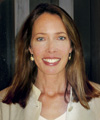
Miriam Buhl
Miriam Buhl is Pro Bono Counsel at Weil, Gotshal & Manges, LLP and has coordinated the firm’s award-winning worldwide pro bono program since 2005. In 2011, Weil’s 1,200 attorneys performed nearly 80,000 hours of pro bono work on a wide range of issues including human rights, economic development, corporate governance, political asylum and environmental protection. Ms. Buhl was named Pro Bono Counsel of the Year by The Legal Aid Society in 2006, in 2010 she received the Nonprofit Coordinating Committee’s first Public Advocacy Award, and in 2012 she received the Louis J. Lefkowitz Public Service Award from Fordham University School of Law. Ms. Buhl is a graduate of Brown University and Fordham University School of Law.
How did you decide to pursue a career in pro bono?
After brief experience as a biglaw paralegal, I was bouncing around from job to job when I read about the NAACP’s Yonkers fair housing case and was moved to go to law school and focus on public interest. My first gig as a housing attorney at Legal Aid and subsequent positions running various programs, nonprofits and foundations gave me the wide experience that I draw on now as Weil’s Pro Bono Counsel.
Did you have mentors who helped you define and shape your career?
Fordham Law Dean John Feerick was the first person (other than my mother) who saw some glimmer of potential in me, and for that I’m tremendously grateful. The public interest community and clients I’ve met along the way also inspire me. My co-workers are incredible, and the co-chairs of Weil’s Pro Bono Committee, Steve Reiss and John Strasburger, are the kinds of bosses that make you to want to work harder every day.
What has been one of the most interesting pro bono cases you have coordinated?
I’m most proud of initiating the housing work Weil does with Legal Aid, because of my history there, our annual Not-for-Profit Board Governance Symposium, and the strong relationship we’ve built with the Innocence Project.
What challenges do you experience with your practice?
Surviving with dignity the disappointment when my colleagues are disabused of the charming notion that I am brilliant and know, in depth, all of the areas of law in which their pro bono matters lie – everything from nonprofit incorporation to death penalty questions. If I knew all of that. . . .
What do you particularly enjoy about your job?
It is a thrill to work at a firm that actively encourages full engagement in our communities through pro bono. I particularly enjoy helping deliver legal assistance to individuals and organizations who need and deserve it.
What advice do you have for an attorney who is interested in taking on a pro bono case?
Carpe diem.
Interview conducted by Elizabeth Carline, Legal Recruiting Coordinator at Weil, Gotshal & Manges LLP and Member of the Career Advancement and Management Committee, December 2012.
Debra Vey Voda-Hamilton – Being an Animal Conflicts Mediator
After my public sector legal career, I stayed home for a number of years and raised my two sons. I’d chosen to be a stay-at-home mom, yet it was far from ‘stay at home’. I was heavily involved in the PTA and my sons’ sports teams. You learn quickly the skills that helped move your cause forward in the legal world did not always endear you to your fellow parents. You had to be the great equalizer and motivator as a class or team parent, fundraiser or PTA representative.
Before returning to the practice of law, I completed Pace University Law School’s New Directions program for reentering attorneys. I thought it would be easy to just step back into those black litigation pumps I’d left in the closet 13 years before. I quickly realized after 6 months as a solo practitioner focusing on animal conflict litigation, it was unfulfilling. I won my cases, my clients were happy with the outcomes I achieved; I was thousands of dollars richer, they were thousands of dollars poorer. However, I did not believe it was the best use of my skills or my client’s money
My interest in mediation was sparked by a presentation at New Directions . When I went to law school in 1980, mediation was something others did, not attorneys. I may have been misinformed at the time yet that was my impression. Mediation is now widely accepted as a legitimate means by which parties can avoid or lessen the divisiveness of litigation. By having the parties participate in fruitful conversations, before trial, the litigation often ends in more equitable, negotiated settlements.
I looked into how to become certified as a mediator and took several mediation courses. Always the overachiever, I participated in two internship programs, one at Community Mediation Service in Jamaica and the other at Cluster in Westchester and Rockland.
After being certified by both these programs, I decided to stop practicing law, as I knew it, and create a practice whose focus is on helping people resolve conflicts involving animals. It was a leap of faith. I knew in my heart this niche existed and that I needed to pursue it. I have yet to regret my choice even for a moment.
What type of disputes do you mediate?
I assist my clients in divorce disputes, landlord/ tenant, condo/coop, vet disagreements, groomer/kennel, owner /breeder/handler, trust and estates, and neighbor disputes over barking or loose dogs.
Why mediate animal disputes?
Animal conflicts between people are very emotional affairs. In a court of law, it is like the old Dragnet television program- “Just the Facts Madame”. Yet in pet conflicts, emotions come to the table and are part and parcel of the dispute. This cannot be accessed or redressed by a court; they are limited by the black and white of the law. There is no gray.
Those wanting to work out a novel or unique resolution to their conflict will get nowhere in court. Mediation and collaborative practice allows parties in conflict speak to the ‘why’ of the conflict and to their interests in a way courts are not equipped to address. Resolutions coming out of mediation often stand the test of time because they are party driven, not dictated by someone outside the conflict.
How do you get referrals?
My clients come from my speaking at events, and word of mouth. My prior clients are my best unpaid sales force. My ability to speak to pet owner groups and attorneys steeped in animal law conflicts provide me with a steady source of clients. I speak at homeowners groups, and veterinarian and pet supply establishments to enable pet owners to know there is a way, short of litigation, to get some relief from their conflicts. My personal profile and business description have been featured in articles in The New York Times, US News and World Report and the Wall Street Journal to name a few.
What advice would you have for an attorney who wants to establish a mediation practice?
Apply your mediation practice to your passion. If you know people are thirsty for the ability to have a conversation about their conflict in the area you practice, before litigation, then set up your practice to provide that venue. In the long run, litigation attorneys will appreciate your providing them the ability to refer their clients with less than stellar cases, to someone who may be able to help in a way they can’t. Their clients will appreciate possibly being able to find some relief from a mediated discussion. The attorney’s credibility and the mediator’s subject matter familiarity will enable the parties to have a discussion and reach a resolution on their own they can live with or negotiate a settlement with a better understanding of the legal obstacles they face. You can always litigate; mediation creates a space to decide if you should.
Interview conducted by Kathryn Gutowski, Assistant Director, New Directions Program, Pace Law School and Member of the Career Advancement and Management Committee, May 2012.
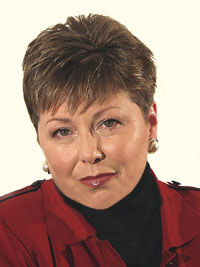
Carol Frohlinger, Speaker and Author
Finding Your Place at the Table: A Conversation with Attorney
Carol Frohlinger works with organizations who understand that promoting and retaining talented women is a “win-win-win” ─ good for women, good for men and good for the bottom line. Her company, Negotiating Women, Inc., provides practical skills training women can use immediately to be more successful at work.
A nationally recognized speaker, Carol is a former sales executive, banker and practicing attorney. Here this graduate from Fordham University School of Law talks about how she made the transition from practicing law to helping women and their companies to be more successful.
How and why did you start your firm?
After I practiced law for a few years I joined a training company, specializing in training both men and women to negotiate more effectively with clients and colleagues. In that work, I noticed that while women got outcomes as good (and sometimes even better!) than their male colleagues, they were reluctant to claim the credit they deserved. I became very curious about whether my observations had been validated by research and so I started to read everything I could find on the subject of how gender impacts the ways people negotiate.
My research led me to the scholarly work of Dr. Deborah Kolb (the Deloitte Ellen Gabriel Professor of Management at the Simmons School of Management and Senior Fellow at The Program on Negotiation at Harvard Law School), who is the country’s foremost expert on gender and negotiation.
I convinced her that we needed to “get the word out” more broadly regarding the challenges women face in the workplace and how negotiation can help them to succeed, however they define success. We (with Judith Williams) co-authored a book called Her Place at the Table: A Woman’s Guide to Negotiating Five Key Challenges to Leadership Success (JosseyBass/John Wiley, 2004) and Dr. Kolb and I formed Negotiating Women, Inc. to do speaking, training and consulting work.
As a lawyer myself, I’m particularly worried about the alarming rate of attrition in the legal profession. The good news is that we can stem the tide when and if women proactively negotiate for what they want and need. When they ask ─ and when their employers listen ─ women stay and everyone benefits.
I can’t wait to get up in the morning to do the work I do because I think it makes a difference.
What advice would you have for an attorney who wants to pursue a consulting practice?
Figure out what your passion is and become a true expert in that topic. If you want to start your own firm, be sure you have an entrepreneurial personality. If you are interviewing with a consulting firm, make the case that your training as a lawyer puts you in a strong position to access a situation quickly, see the issues clearly, research solutions thoroughly and then apply processes to resolve the situation. Reach out to your networks to give assistance to others; if you give freely, you not only feel great, you will reap the benefits. Focus on your negotiation skills; they will enable to you know what you want as well as to make it possible to get it.
Carol’s book, Her Place at the Table: A Women’s Guide to Negotiating Five Key Challenges to Leadership Success is available at amazon.com, Barnes & Noble and other business retail stores. For more information about Negotiating Women, Inc., visit www.negotiatingwomen.com.
Interview with Carol Frohlinger conducted by Natalie Holder-Winfield of the Committee on Career
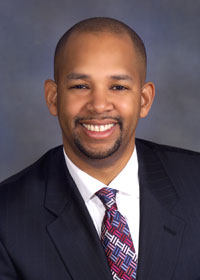
Editor’s Note: Mickey is now Senior Vice President, Television Networks Distribution at CBS Corporation
What was your first job upon graduating from law school?
I attended Harvard College on an Army R.O.T.C. scholarship. After working for a general practice law firm in Chicago for a short while after graduating from Notre Dame Law School, I fulfilled my R.O.T.C. obligation by serving on active duty as an Army officer in the Judge Advocate General’s Corps.
How did you make the transition from being an Army JAGC attorney into entertainment?
Upon discharge from the Army, I moved to Indianapolis where my law school roommate and I opened a sports and entertainment law practice. What began as a small practice representing a handful of Gospel music recording artists grew into a full-service entertainment law firm with clients in music, radio, and television as well as professional sports. I moved to New York when I was offered a position in the Business Affairs department at Jive Records after getting to know their attorneys fairly well from having negotiated deals across the table from them.
How did you land the position at Fox News?
Before joining the Fox News team, I worked at Time Warner Cable where I negotiated content deals for cable and broadcast television. In that role, I had the opportunity to negotiate several deals across the table from Fox. When I heard that Fox News was looking for a Vice President of National Accounts, I called to express my interest and was hired in April 2007.
What are some of your job duties?
In my current position, I am responsible for distribution strategy for Fox News content and the negotiation of content distribution deals with Fox News’ affiliate distribution partners, including Comcast, DirecTV, Time Warner Cable, Verizon, AT&T, and Yahoo.
What are some of the most fulfilling aspects of your job?
In this fast-paced age of digital media, I enjoy the opportunity to work with a group of talented people at Fox News in developing distribution strategies for our content with a growing number of affiliate partners on a growing variety of platforms including, but not limited to, cable television. I have always enjoyed negotiating contracts, and this position gives me the opportunity to negotiate some of the more complex and interesting agreements of my career.
In your opinion, what skills are crucial for being successful in your position?
I think it is important first and foremost that you love the process of negotiating agreements and doing deals. With regard to specific skills or bases of knowledge, I think that it is important for an effective deal-maker in today’s world to have a working knowledge of accounting principles. The well-publicized corporate accounting scandals of the last few years have brought increased scrutiny upon how deals are structured and accounted for by companies and made this analysis a much more important part of the process.
How can someone prepare for a career similar to yours during and immediately after graduating from law school?
I think it is important during law school to focus upon getting the best grades you can. I know this answer is not very insightful, but I think having success during law school is the most reliable path to receiving the best opportunities for excellent training after law school. I believe the practice of law is something you learn after law school, and you should seek the best opportunities to work with attorneys in an environment where you can learn to draft and negotiate contracts.
What advice would you offer to an attorney seeking a position similar to yours?
Entertainment jobs are not very easy to find for young attorneys graduating from law school. In the absence of a great job working for entertainment clients or an entertainment company right away, the best advice I can offer is to focus upon getting the best training/experience you can in an area of the law that interests you. As you gain experience, almost any legal specialty can give you a path to begin representing entertainment clients or to work in-house for an entertainment company. In addition, do not underestimate the value and utility of attending entertainment conferences, seminars, or other industry events where you can network and meet the people who can help you find your next opportunity.
Interview with Mickey Carter conducted by Natalie Holder–Winfield of the Committee on Career Advancement and Management.
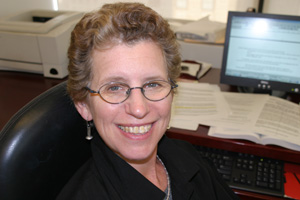
Pamela Mann
Pamela Mann, Partner and Chair of the Tax-Exempt Organizations Group of Carter Ledyard & Milburn LLP discusses what it is like to be an attorney representing nonprofit organizations.
Years in Practice (law/this practice area): 39/28
Education: University of Pittsburgh School of Law, Oberlin College (undergrad)
Place of Current Employment: Partner and Chair of the Tax-Exempt Organizations Group of Carter Ledyard & Milburn LLP (January 2013 – present).
Prior Experience: Law Offices of Pamela A. Mann, LLC (1996-2012); Chief, Charities Bureau, New York State Attorney General’s office (1985-1995). Prior to 1985, worked in various public interest jobs.
Recent Professional Publications/Presentations: Organize yearly PLI conference on Advising Nonprofit Organizations (2002-2013); regular speaker at seminars for attorneys and nonprofit professionals; publications include: Nonprofit Resources, American Bar Association Press, 2007 (co-managing editor) and Nonprofit Governance and Management, American Bar Association Press, 2002 (co-author).
What is it like to be an attorney representing nonprofit organizations? Is there a typical day you can describe?
The work is extremely varied, as are the clients we represent. Yesterday, for instance, I advised an animal rights organization on potential liability issues relating to an upcoming fund-raising event, analyzed for a social service organization founded in 1806 and owning land in North Carolina the advisability of filing objections to a development project for which an adjacent property owner is seeking approval from local authorities, worked on a religious organization’s changes to its governance structure, and drafted a memorandum on the pros and cons of forming a new organization as a public charity or a private foundation.
What challenges do you experience in your practice?
The primary intellectual challenge is to harmonize the conflicting demands of the tax-exempt organizations provisions in the federal tax code and those in the relevant state laws, given that they often point in two different directions, in recommending courses of action for our clients. The primary practical challenge is to provide high quality legal services at the lowest possible cost.
What aspects of your practice make it interesting and rewarding to you?
The variety of the issues, the fascinating work that our clients do, and the opportunity to solve complicated problems make this work rewarding and interesting.
What educational or vocational background and skills are helpful in excelling in this practice area?
Having taken law school courses in exempt organizations or having a background in tax, particularly exempt organizations-related tax, is helpful but not essential. Most people who work in this area learn on the job, as I did at the Charities Bureau.
What does it take to become successful in this practice area?
As in all areas of the law, it is helpful to be a good writer, a good listener, and a problem solver. Being active in bar association work is a good way to keep up with developments in the law, as well as to network with other lawyers who work in this area. New York City is one of the few areas of the country where a reasonable number of attorneys specialize in this work, and bar committees provide a venue for developing working relationships.
Could you share some of the most important things you have learned over the years being an attorney representing nonprofit organizations?
First, nonprofit organizations are unique in the law because they are formed to pursue goals unrelated to anyone’s personal interest. I’ve also learned that harnessing those goals in making day-to-day business decisions can be extremely challenging and often requires, if not the assistance of an attorney, at least that of an advisor who can fashion a solution that serves both the immediate practical goal and the overall charitable mission.
Did you have mentors who helped you define and shape your career and its direction? How did you form these relationships?
I have been very fortunate to have mentors throughout my career. When I started practicing law in 1974, female attorneys were rare, and women in a position to be mentors and role models were rarer still. However, my first legal job was with a female trial judge, and she was a wonderful role model and teacher. She strengthened my resolve to pursue a non-traditional career that was oriented toward serving the public interest. Early in my career, I worked with a group of women from around the country who produced the first national conferences on Women and the Law, and, through that work, I developed enormously useful contacts with people who inspired and taught me. Also, when I left the Charities Bureau to start my practice, many members of the exempt organizations bar – most of whom I had met through my work as Chief of the bureau and on the City Bar’s Committee on Nonprofit Organizations — were incredibly generous with their wisdom and guidance on matters both substantive and practical.
What are your interests/hobbies/pursuits outside of your practice area? How do you make time for them?
My husband and daughter are incredibly important to me, and making time for them and for my extended family is my highest non-work priority. Once our daughter was out of the nest, family time had a different cast to it, but it remains central. I am a classical singer, and, except when my daughter was very little, I have always performed in a choir and sometimes have also done solo work. I exercise regularly, and I am an avid skier and traveler. The way to make time for these things is to view them as equally as important as one’s work and to build them into one’s schedule in the same way as one schedules work appointments. There will, of course, be times when work deadlines or other exigencies take precedence, but this strategy limits those occurrences.
What practical advice can you give to law students and young lawyers considering this practice area?
The most important thing to do is to get relevant substantive experience in this area by taking any relevant courses available at your law school. Also, working on pro bono matters to get some experience representing nonprofits can be helpful, and that avenue is often available to young lawyers in big firms.
Could you recommend any reading materials about your practice area?
I am not aware of any materials about this practice area. As far as materials about the substantive law, a review of the Internal Revenue Service’s website gives an overview of the tax rules, and the New York State Attorney General’s Charities Bureau website also contains relevant information about the state law, as does the website of the National Association of State Charity Officials (NASCO). Independent Sector’s website and the Council on Foundations’ website contain general information about the nonprofit sector, and both organizations publish excellent books on various aspects of the relevant law and best practices.
Interview conducted by Carroll D. Welch, Assistant Director, New Directions Program, Pace University School of Law and Chair of the Career Advancement and Management Committee, April 2010; updated June 2013.

